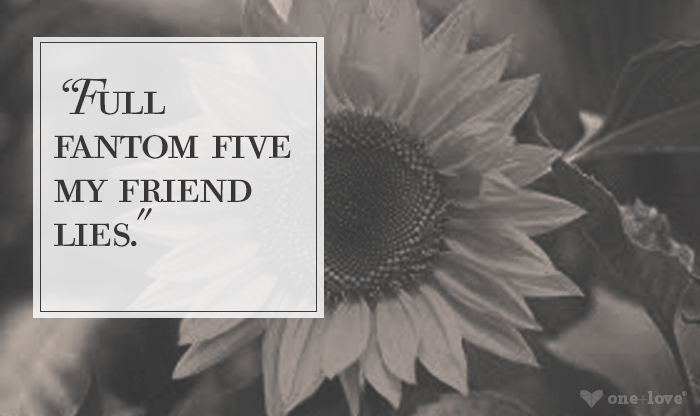
Last Living Speaker: Queering Grief
It’s been six months. Six months since I got the text from her sister, that gasp and rip in the fabric of everything: she’s gone. How could this be? This is when I became a stranger to myself.
Grief queered me, estranged me. Olympic weeper than I am, I still did not know it was possible to weep and leak and ooze and still have plenty of tears left to keep a grief, a waiting, a gut punch so irrigated and green. (Can’t you dehydrate a loss?) I did not know it was possible to be this deeply left, on the shore and eyes trained on the horizon for any movement, for any return. Unblinking. A vigil I keep. Sleep is not the refuge it used to be. Out of the ordinary. It’s a distorted, watery world. I’m blown glass and thinnest wire, on the high wire looking down and wavering. Full fathom five my friend lies, under the waves — I can’t breathe down here — but I’ll hold my breath until I find her. I’m the Orpheus who won’t dare look ahead — ahead of me miles and miles and years and years of open sea without her — I can’t. I can’t believe I’ve endured six months. Incongruous.
But I’m not done talking to her. Weird. Are you lucky enough to have someone in your life who says, call me any time, and means it? Good. Hold that close. At night, when it’s quiet and still and my mind starts picking at its seams, I knew I could call her and get some gathering. Eyes closed, both of us half-asleep at times, falling together through an endless silk of dark, I am not letting go of your hand. Where do you end and I begin? They say you didn’t end, will never end, but, oh, friend, where are you? Something in me feels ended indeed.
Three different nights I broke down, months after her death, and texted her to ask where she was. I knew better, but the dark was pressing all around and the silk turned to burlap suffocating. Already her phone number has been given to someone else — Verizon, what the fuck? — and one text got no response, another got “wrong #,” and the other said, “U got the wrong #.” I have something urgent I want to ask her. But there is no one alive who can answer it. Unnatural.
Darkness of the beloved’s silhouette. Dark road ahead, barely illuminated by you can get through this, they murmur headlights. My dark body no longer suspended in an iceberg because she taught me in absentia that I could really love, really thaw. This is a dark and queer and obscure moonscape — this land where I can’t see my own face but I can’t forget yours. Baffling, bizarre. I guess I’ll live for two and be shot through with light.

Recent Comments